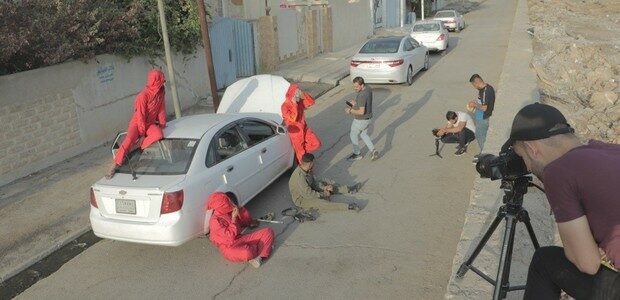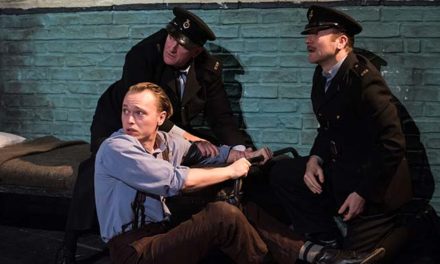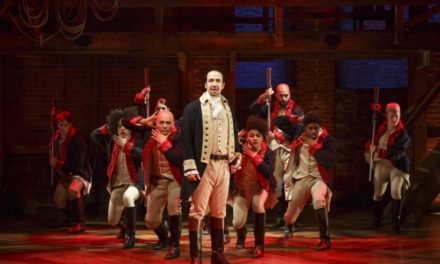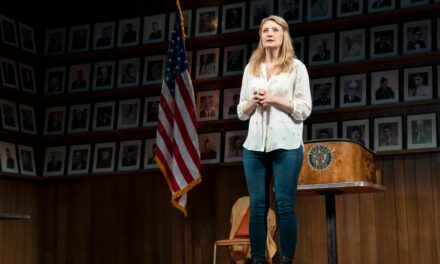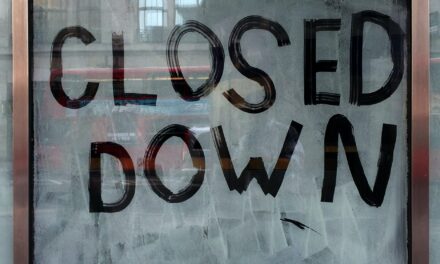A group of young volunteers in northern Iraq produced the slick Bella Ciao music video because they couldn’t join anti-government protests themselves.
There have been a variety of artistic contributions to Iraq’s anti-government demonstrations over the past few weeks, including wall murals, cartoons and drawings, songs and even music videos. One of the productions that has gained the most traction is the Iraqi version of the famous Italian folk song, Bella Ciao, once an anti-fascist anthem in that country.
A professional music video was made for the song, overlaid with lyrics in Arabic, to reflect the sentiments of the protesters. “I did not achieve my dream. I left my school and they made me forget my name,” the Iraq-specific lyrics to the Italian song go. “My tears fell for my stolen rights. I do not have a job and I have no money in my pocket. There is no future – so why should I study without having a goal. My brothers were killed. No future.”
“The symbolism of this revolutionary song and the original words inspired us to produce an Iraqi version.”
To see the video, please click here.
The video and the re-written lyrics were produced by a group of 12 young people from the northern Iraqi city of Mosul. “The symbolism of this revolutionary song and the original words inspired us to produce an Iraqi version of it,” Abdul-Rahman al-Rubaie, the 25-year-old producer of the song and video, explained to NIQASH. “We wanted to support the protesters in our own way because in Mosul we cannot protest, for many reasons.”
Most of the largest anti-government protests have taken place in southern and central Iraq while locals in the Sunni Muslim-majority northern areas have not participated. They have not done so because they fear that they will look like terrorists or Baathists – the Baath party was Saddam Hussein’s political party, which favored Iraq’s Sunni Muslims over its Shiite Muslims. The extremist group, known as the Islamic State, also based its ideology on a hard-line version of Sunni Islam.
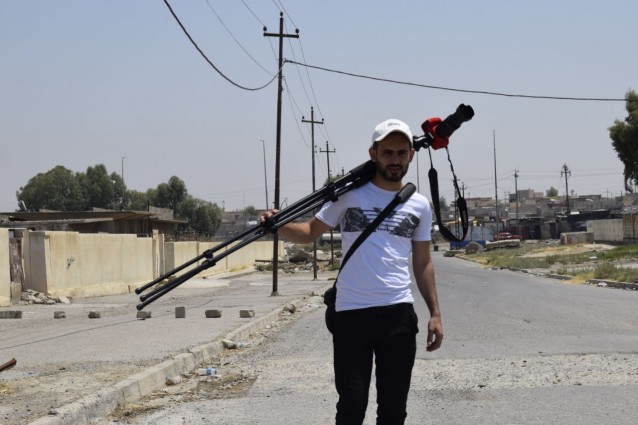
Video producer Abdul-Rahman al-Rubaie on the shoot.
So this was a way for the young people of Mosul to support the protests, al-Rubaie explained. He is a member of a local theatre group called After the Darkness. The group was so named because it wanted to offer creative expression to the hope that was inspired by the ousting of the extremist Islamic State group in northern Iraq – the years that the extremists were in charge in Mosul were seen as a particularly dark time.
The group first decided on the Italian song as the basis for their video after hearing it in the Netflix television series, Money Heist, from Spain. In it, several of the characters sing the song because to them, it symbolizes resistance.
The theatre group decided to try and use the red overalls from the Netflix series as well as the Salvador Dali masks that the actors in the popular Spanish show also wear. “We couldn’t find any red overalls though,” al-Rubaie says, “so we had to paint some. As for the masks, we wanted three of them and thought of buying them from Amazon but they cost US $15 each, not including the costs of delivery. And we couldn’t afford that – so we decided to make the masks ourselves.”
The house where the group eventually filmed their video was empty and belongs to the grandfather of one of the group. All the other set decorations were also made by the Mosul locals themselves.
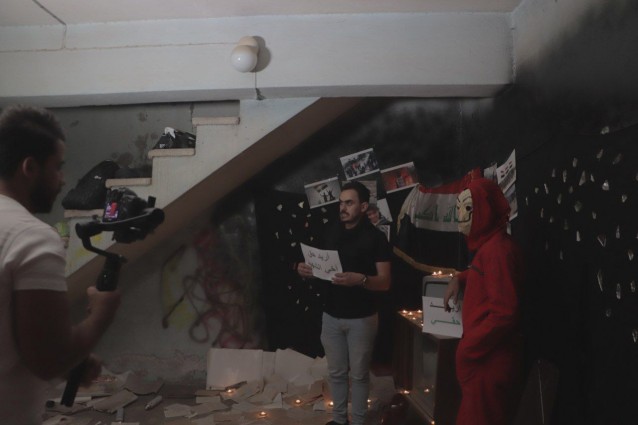
Stills from behind the scenes at the video shoot
Last week, the group came out with a new video called Tuk Tuk, named after the small three-wheelers, that have become one of the icons of anti-government protests because they ferry demonstrators and supplies to and from the protest areas for free, as well as transporting the injured for medical treatment.
The After the Darkness theatre group was first formed two years ago when a group of young people from Mosul made their way down to the southern city of Karbala to participate in a performance there. The actors and support staff all work on a voluntary basis and fund their activities themselves. Over the past three years, the group has put on about 80 different performances in cities around the province, mostly in Mosul.
And this is far from their first popular video. They’ve also produced sketches, mostly comedic, about living conditions in Mosul. One was about how rumors spread, another mocked the education system, and another was a comment on the floods that the city’s locals experienced. After the Darkness has also produced a short film called Abstract Dreams, about the suffering caused by war and producer al-Rubaie has also worked on a radio show.
“We all have other jobs as well, to support our families, but we give some of our wages to this project,” al-Rubaie explained. “I also work for an advertising agency and one of the other members is a teacher. A lot of the others are still at university. Most of us would like it very much if we could make this kind of creative work our main source of income eventually,” he added.
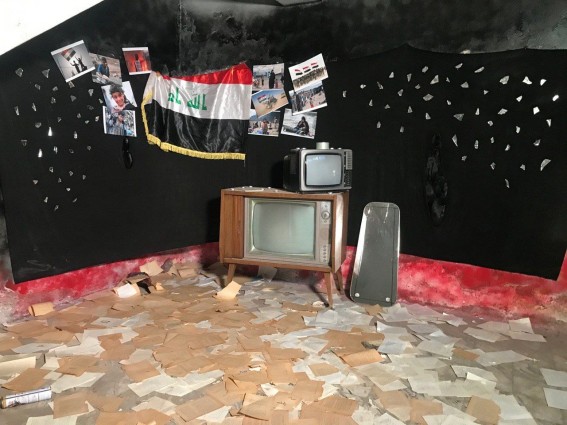
Stills from behind the scenes at the video shoot.
This article was originally posted at https://www.niqash.org/ and has been reposted with permission. To read the original article, click here.
This post was written by the author in their personal capacity.The opinions expressed in this article are the author’s own and do not reflect the view of The Theatre Times, their staff or collaborators.
This post was written by Mustafa Habib.
The views expressed here belong to the author and do not necessarily reflect our views and opinions.

